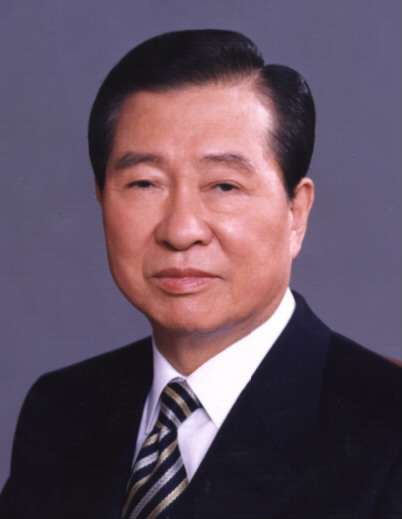Kim Dae-jung: A Nobel Laureate’s Pursuit of Peace

Kim Dae-jung was the 15th president of South Korea, serving from 1998 to 2003. He was a Nobel Peace Prize laureate, awarded the prize in 2000 for his “sunshine policy” towards North Korea.
Kim Dae-jung was born in 1924 in Geoje, South Korea. He studied law at Seoul National University and became a lawyer after graduating. He was elected to the South Korean National Assembly in 1961, but was imprisoned by the military dictatorship of Park Chung-hee in 1971. He was released from prison in 1982 and continued his political career.
In 1997, Kim Dae-jung was elected president of South Korea. He immediately began to implement his “sunshine policy” towards North Korea. This policy was based on the idea that engagement and dialogue with North Korea was the best way to promote peace and stability on the Korean Peninsula.
Kim Dae-jung’s “sunshine policy” was successful in achieving some important breakthroughs in inter-Korean relations. In 2000, Kim Dae-jung and North Korean leader Kim Jong-il held a historic summit in Pyongyang. The two leaders signed a joint declaration that called for the peaceful reunification of the Korean Peninsula.
Kim Dae-jung’s “sunshine policy” was controversial in some quarters. Some critics argued that it was too soft on North Korea and that it did not do enough to pressure North Korea to improve its human rights record. However, Kim Dae-jung’s policy was ultimately successful in bringing about a period of relative peace and stability on the Korean Peninsula.
The Importance of Kim Dae-jung’s Peace Efforts
Kim Dae-jung’s peace efforts were important for a number of reasons. First, they helped to reduce tensions on the Korean Peninsula. The two Koreas had been technically at war since 1953, and there was always the risk of a renewed conflict. Kim Dae-jung’s policy helped to create a more peaceful environment on the Peninsula.
Second, Kim Dae-jung’s policy helped to promote dialogue and cooperation between the two Koreas. This dialogue led to a number of important agreements, including the 2000 joint declaration. These agreements helped to lay the foundation for a more peaceful and prosperous future for the Korean Peninsula.
Third, Kim Dae-jung’s policy was an inspiration to people around the world. It showed that even in the face of seemingly insurmountable obstacles, it is possible to achieve peace through dialogue and cooperation.
Conclusion
Kim Dae-jung was a visionary leader who made a significant contribution to peace on the Korean Peninsula. His “sunshine policy” was a bold and risky initiative, but it ultimately proved to be successful in bringing about a period of relative peace and stability. Kim Dae-jung’s legacy will continue to inspire people around the world who are committed to peace and reconciliation.
Lee Min-ho: The Heartthrob of Korean Drama
Hi, I’m [jeybee]. As a long-time resident of Seoul, I’m passionate about uncovering the authentic, everyday magic of Korea. This blog is my way of sharing my favorite spots, tips, and cultural insights with you, beyond the usual tourist traps.

